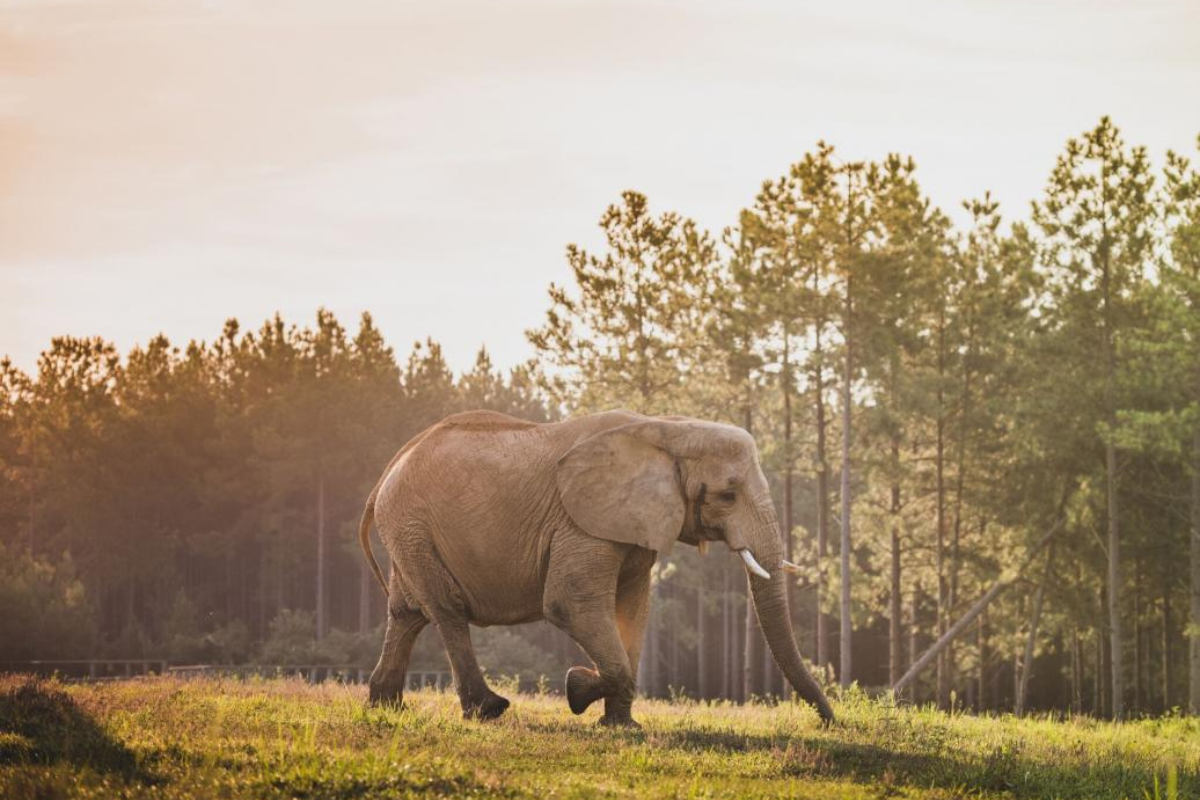We have a cheer for African elephant Osh, a 30-year-old pachyderm, who will be moved from California’s Oakland Zoo to the Elephant Sanctuary in Tennessee in the fall. For more than 25 years, the sanctuary has provided elephants with individualized care, the companionship of a herd and the opportunity to live out their lives in a safe haven dedicated to their well-being.
Upon Osh’s arrival in Tennessee, he will immediately be able to communicate with and smell other elephants. Elephants often communicate using low-frequency vocalizations that can travel over many miles in the wild. Two new 3,000-square-foot bull barns are under construction for Osh and Artie, another male African elephant aged 41.
Osh will have the opportunity to get to know Artie across fence lines. After settling into the new barns and habitats, and with the care staff at the Sanctuary, Osh will also have the opportunity for introductions to female African elephants. There is even hope that Osh will reunite with Donna, the Oakland zoo’s last remaining female African elephant that was relocated there last year.
With growing consensus among the experts that life in captivity is physically and emotionally painful for an elephant, there is pressure on zoos worldwide to phase out elephant exhibitions altogether. Indeed, due to the practical and ethical concerns associated with keeping elephants in captivity, fewer of these animals are on exhibit in U.S. zoos. Since 1991, dozens of zoos have closed their elephant exhibits, including the San Francisco Zoo, Santa Barbara Zoo, Sacramento Zoo and Monterey Zoo. Unfortunately, The LA Zoo has a 6.65-acre elephant exhibit housing two Asian bull elephants, Billy and Tina, who have been there since 1989 and 2010.
Aristotle said that elephants were “the animal which surpasses all others in wit and mind.” Recent studies of elephant’s behavior and brain have confirmed what was evident to the ancient Greek philosopher: Elephants have an extremely high level of intelligence and social awareness. Elephants have a strong sense of self and family. Elephants mourn the death or loss of family members. In the wild, elephants travel up to 50 miles a day. They learn, play, and show compassion to others in their family.
Conversely, elephants captured from the wild and forced into captivity suffer from depression, anxiousness, mood swing, and fear. They also exhibit higher rates of disease and disability. No wonder that zoo elephants simply don’t live as long as those in the wild.
It’s time for the LA Zoo and others who have elephant exhibits to do the right thing and get these pachyderms to a sanctuary.
Photo credit: Tennessee Elephant Sanctuary

